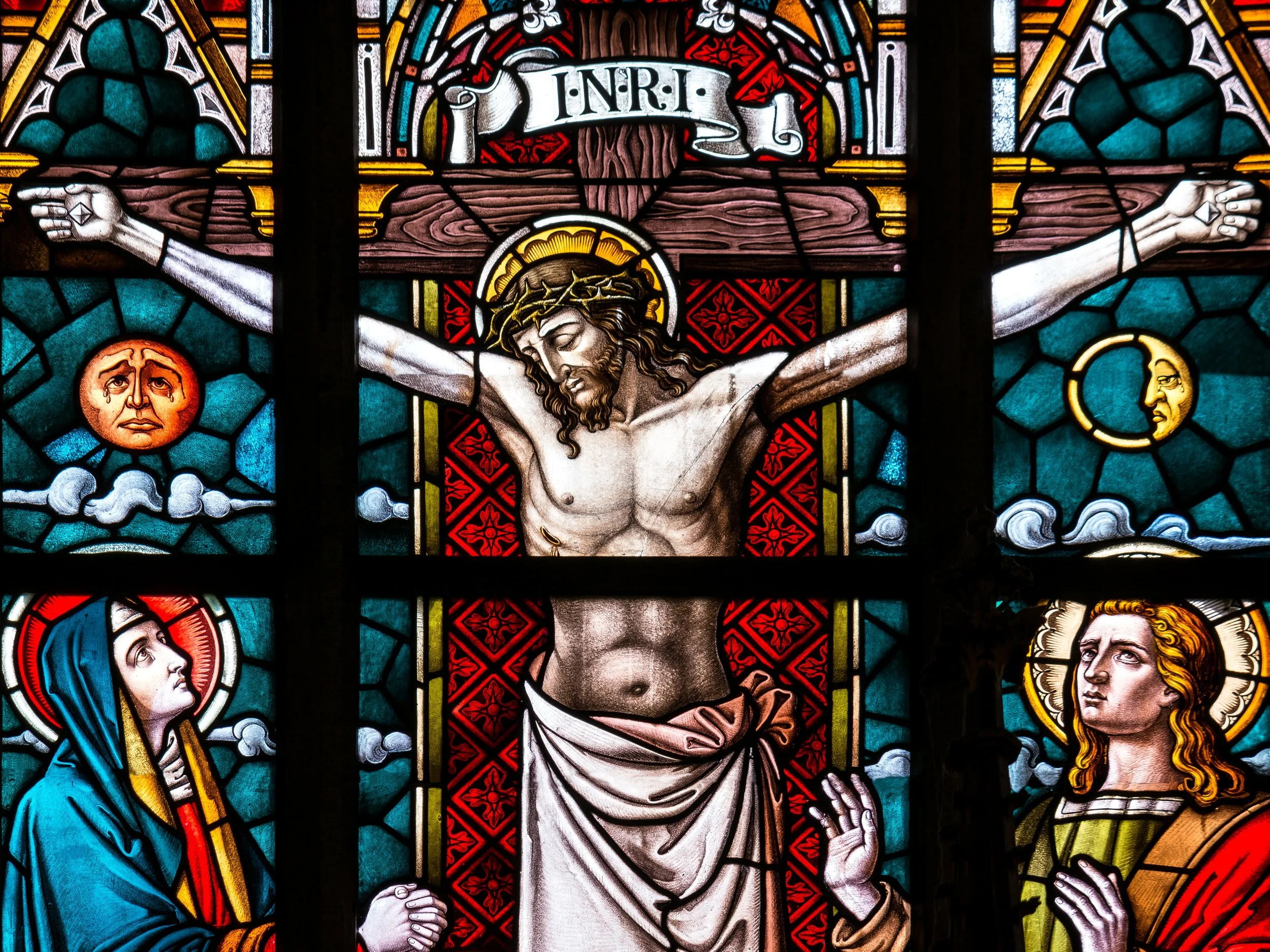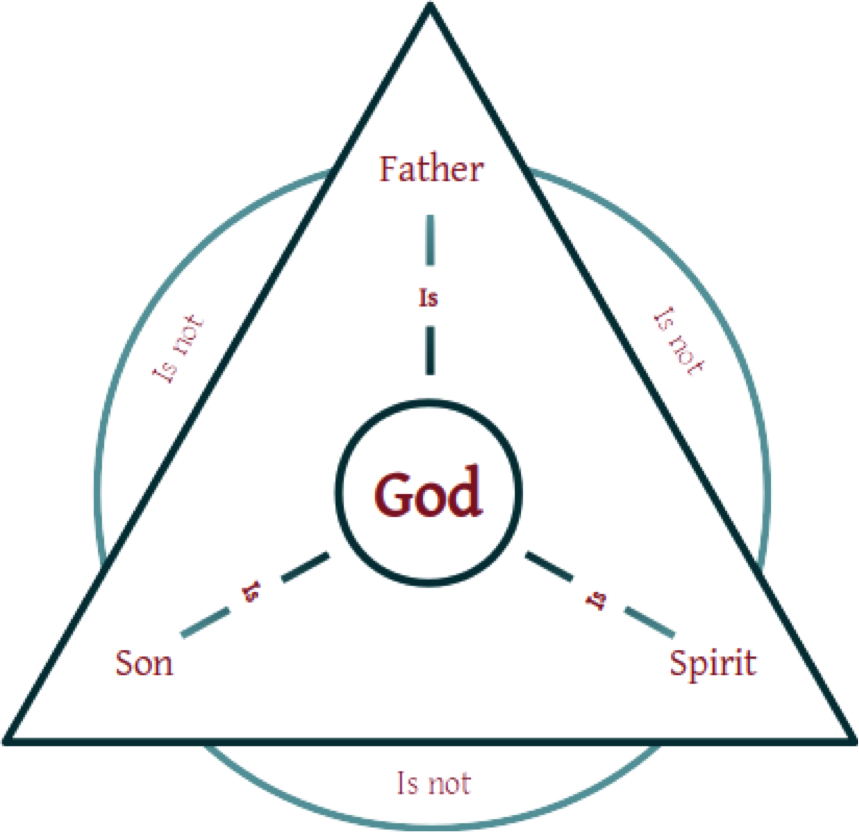The reason we are talking about unity is because we have a sense that we are lacking in unity.
Read MoreWithin the context of the Reformation each sola affirms something and denies something else. The final authority of the church is sola Scriptura (by Scripture alone) rather than tradition.[1] Salvation comes sola fide (by faith alone) rather than by a combination of faith and good works,[2] as well as sola gratia (by grace alone) which excludes any and all human effort or cooperation, in solus Christus (Christ alone) as the only mediator of that grace rather than penance, sacraments, the Priests, the heavenly Saints, or Mary, all to and for soli Deo Gloria (Glory to God alone) rather than man.
Read MoreThe first time Martin Luther thought he was going to die he cried out, “O, Mary help!”[i] The second time, only a few years later, during a mighty thunderstorm he fell off his horse and screamed, “Save me, St. Anne, and I’ll become a monk!”[ii] Years later after washing in the cleansing waters of Gospel grace and drinking the living water of Gospel life thus truly becoming born-again he would launch the Protestant Reformation. In one sermon he would reflect back soberly saying, “St. Ann was my idol.” He told the congregation the despicable truth of the human heart is that “it is easier for us humans to believe and trust in everything else than in the name of Christ, who alone is all in all…”
Read MoreRecently in Advent Christian Voices, there was a call for a conversation discussing what it means to be a missional church. The idea of a missional church is not new. Two decades ago the term 'missional church' was coined. The term suggested that "the church is to be understood not as an organization with a mission; rather the church's very identity is mission” (Ott, Strauss and Tennent 2010, 197 in Raven, 2017, 164).
Read MoreThe world is supposed to end on Saturday. That’s at least according to some crackpot astronomers/Biblical scholars. I do not want to give them the time of day in this space, but you can find fitting responses here and elsewhere. As Advent Christians, we are no strangers to foolhardy Biblical calculations and date-setting. After the excesses of William Miller and the subsequent “Great Disappointment”, Advent Christians know better than anyone else the futility of trying to pin down the time of Christ’s return, of which he himself said, "But concerning that day or that hour, no one knows, not even the angels in heaven, nor the Son, but only the Father.” [Mark 13:32 ESV]
Read MoreIt was another morning like any other. By some titanic feat I managed to get myself out of bed to plod my way downstairs for breakfast. Breaking past the stairwell wall and coming to the railed banister, I could see my mom reading her Bible in the recliner as she always did, her little dog cuddled up beside her. It was just another day, same as any other.
Read MoreSome people treat church like a Hollywood gala we see on the news. The mission of those in attendance is to impress and get attention. Some treat church like a concert. Their mission is to attend, enjoy it and go home. Is that all the church is meant to be? I think church should be like my dog treats me or other guests who come into our home. I am the most important thing to my dog, and he has no greater joy than to be with me; to have my attention, and for me to love his attention…
Read MoreIn the article, “Where Are Tomorrow’s Leaders?” published recently on the Advent Christian Voices website, and reprinted from the Advent Christian Witness, veteran Advent Christian pastor Steven Brown poses an important question. He argues that the traditional model of theological education in a seminary or divinity school no longer serves the needs of the Advent Christian Church.
Read MoreFor about one hundred years Advent Christians relied principally on two colleges to prepare church leaders.
While formal theological education was not universally valued in the churches, the schooling model was believed by many to be the primary incubator for people called to ministry. Training leaders in theological colleges (and seminaries) was entirely consistent with accepted practice in the wider North American church, reflecting an educational paradigm highly regarded in the last half of the 19th century into the present era.
Read MoreIf you’re like me you love the Bible. I love to be around other people discussing the Word, what it means, how it affects our lives and everything about it. I recently watched a Francis Chan Sermon that truly convicted my heart.
Read MoreBefore I get on with what I am about to write, I want to first dispel any narrow association that might be assumed in my use of the word “mission”. Very often when we hear the word “mission” we think “missions”, and more specifically “foreign missions”. This is to be expected since the sort of talk in our churches that typically involves words that sound like “mission” are usually in association with short-term missions trips and supporting foreign missionaries.
Read MoreThe Facebook posts of three Millennial pastors caught my eye — one frolicking on the beach with his two young boys, another shouldering his daughter as they watched a 4th of July parade and a third holding, high above his head, a grinning son.
Read MoreOriginal Post: Identity: What does it mean to be an Advent Christian?
Answer: With the passing of our new Statement of Faith we have given ourselves a much greater sense of identity. Advent Christians are Evangelical followers of Jesus Christ who seek to make Christ’s name known throughout the world with a longing for the imminent return of Christ, finding our only hope in Him.
Read MoreIn a recent Advent Christian Voices article, Corey McLaughlin examines conditionalists’ treatment of Revelation 20:7-10 and concludes that our exegesis of that text has been “poor”, and based on “logic stretched thin.” He suggests that our problem is that we are trying to make Revelation 20 say that the lake of fire will come to an end, but that the text insists that it will not. To accurately reflect what is taught in Revelation 20:10, conditionalism will need to be modified to allow for the eternal conscious torment of the devil and his demonic agents.
Read MoreSomething is happening in the Advent Christian denomination. There has been a pain that we have been carrying within us, the sharp hurt of hopelessness, the heavy burden of futility, a bitter irony for a denomination conceived in hope. If as Bob Dylan says, “He not busy being born is busy dying”, until now it has seemed that we made the latter our business, sauntering our way to a denominational dustbin. There has been no reason to believe anything else.
Read MoreWe believe the Bible to be the inspired, the only infallible, authoritative Word of God. (2 Timothy 3:16; 2 Peter 1:20-21)
We believe that there is one God, eternally existent in three persons: Father, Son and Holy Spirit. (Deuteronomy 6:4; Matthew 28:19)
We believe in the deity of our Lord Jesus Christ, in His virgin birth, in His sinless life, in His miracles, in His vicarious and atoning death through His shed blood, in His bodily resurrection, in His ascension to the right hand of the Father, and in His personal return in power and glory. (Philippians 2:6-11; 1 Peter 3:18; Romans 5:9; Matthew 26:64)
Read MoreIs “No Creed but the Bible” actually faithful to the Bible? It is a simple question that can spur a lot of debate, but it is worth asking and trying to answer so that our churches and the denomination as a whole can become biblically stronger, healthier, and more unified. Here are 10 reasons we should pull a Frozen and “Let it go!” (If I had hair, I’d sling it back while I sang the song, but you will just have to imagine that for yourself!).
Read MoreI have wondered about the vocal promulgation of creedalism within the Advent Christian Denomination. I want to share some thoughts regarding what I understand are two of the major arguments in favor of adopting a statement of faith and present what I feel is the greatest weakness to the presentation.
Read MoreFor the past 150 or so years there has been an ongoing debate as to whether we should collectively affirm the historic doctrine of the Trinity. On one hand, it has been argued that the Trinity is part of the foundation of Christian belief and is, in one sense or another, an essential aspect of salvation by grace, through Faith in Christ alone. On the other hand, others have argued that it is merely a construct of the Roman Catholic church, a late addition to Christian belief, an extra-biblical teaching, or even an anti-biblical teaching. This has, it seems, prevented this denomination from fully joining together in Christian unity. And although in recent weeks these arguments have been brought forth anew as we together consider whether we should adopt the NAE statement of faith as our own, there has yet to be an argument set forth publically for or against the Trinity based on the Biblical evidence. It is, therefore, my intent to show the reader that the Trinity is an essential and biblical doctrine.
Read MoreI’m new to the denomination and have been working as the Director of Student Ministry at Oak Hill Bible Church in Oxford, MA for the last two years. I came in as a Southern Baptist, but through the mentorship of others I found inconsistencies in my view of anthropology and eschatology; I’m now a conditionalist. As my good friend Nathaniel now likes to say, “Erik is a Reformed Baptist Adventist” or in other words, “Erik is two parts jerk and one part confused.”(I'll let you figure out the formula) During my short tenure, I’ve noticed that we have several issues as a denomination that many have tried to fix, most will recognize that we still have a lot of work to do. In this piece, I would like to tell you what I’m looking for next week at Triennial as a new Adventist who plans to stay here awhile.
Read More



















